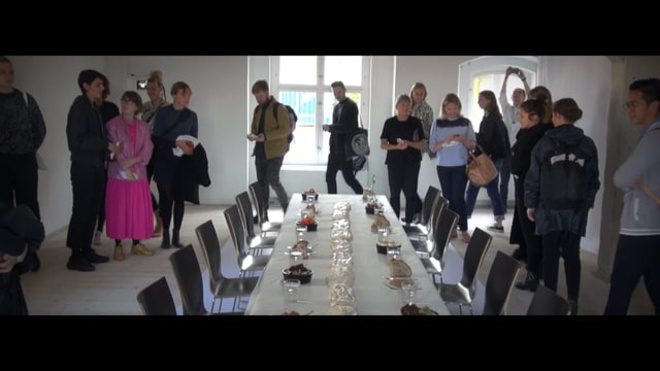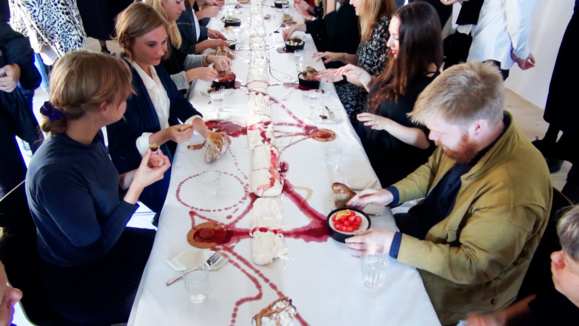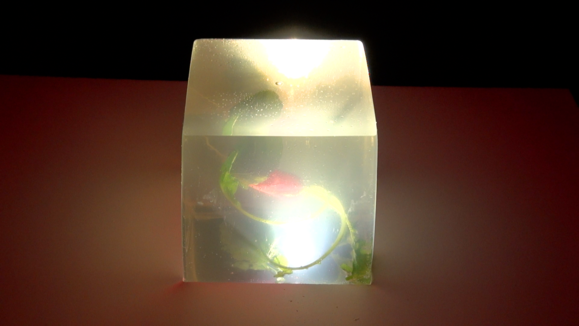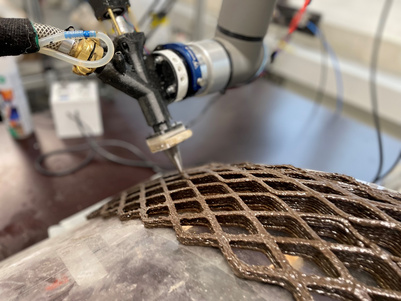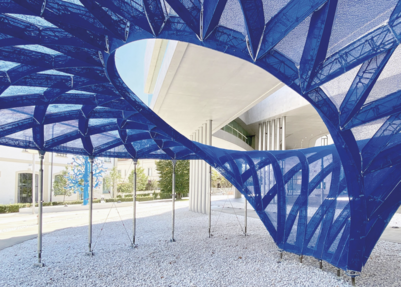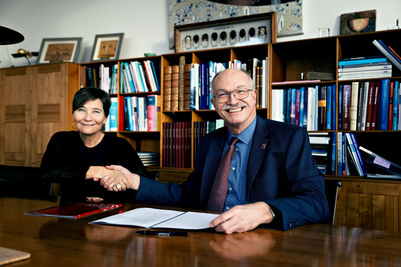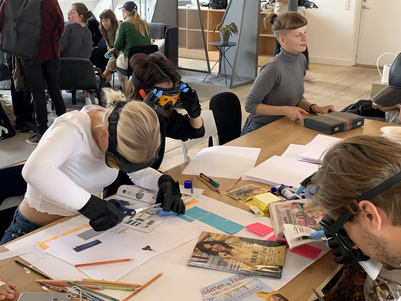KADK and Kähler put food waste on the agenda by inviting guests to dine at a table where the courses disappear faster than the guests have time to ingest them. “Ingestion” is also the name of the installation to be presented at this year’s Milan Design Week.
The table mechanically hums under the tablecloth, as it pulls one course after another past the seated dinner guests faster than they have time to eat them. Glasses tip over, cutlery gets jumbled and plates leave long tracks of gravy, potatoes and roasts behind them before volumes of uneaten food tumble into a large black rubbish bag at the end of the table.
It is confusing, confounding and exasperating – which is also what was intended.
The installation “Ingestion” comprises a total of three performances created as a team effort involving KADK design students and the design company Kähler. It aims not only to stimulate thoughts but also the senses by laying the table for a debate about food consumption and the food waste left in its wake.
“This is precisely what design is capable of,” says Lene Dammand Lund, Rector, KADK.
“We can read articles and write theses about food, consumption and the environment, but physically visualising these topics right in front of us gets things moving in a completely different way. This is why we, at KADK, are under an obligation to apply our design expertise to the agendas of concern to all of us and the future of our common globe. Obviously, our work involves developing specific design solutions and products, but that shouldn’t stop us from impacting and qualifying the debate,” Lene Dammand Lund says.
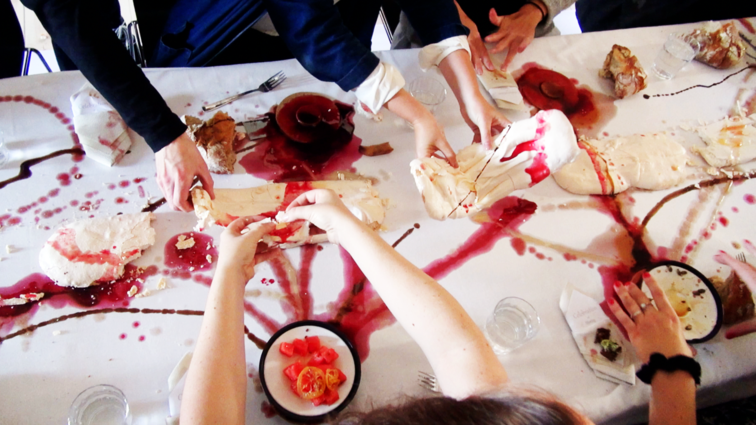
A shared ambition of a sustainable world
In autumn 2016, KADK decided to dedicate three academic years to efforts involving the UN Sustainable Development Goals. In practice, this commitment means that the Academy of Fine Art’s employees, researchers and more than 1,600 students are now focusing their efforts on one overarching task: developing solutions and putting the 17 UN Sustainable Development Goals into perspective.
And this ambition is shared by the company Kähler – one of Denmark’s leading design companies with a tradition of producing ceramics that goes back more than 175 years.
“As a modern design company, it is important for Kähler to contribute to all cultural aspects of society. We want to not only produce design products, but also actively participate in ongoing discussions about design and the role it should play in the future. We are convinced that the design of the future notably depends on designers’ ability to address all the environmental, philosophical and cultural challenges that lie ahead,” says Ane Cortzen, Head of Cultural Development, Kähler.
About Ingestion
“Ingestion” is a collaboration project involving 90 students at KADK’s Institute for Architecture and Design, and Kähler – a leading Danish design company and ceramics manufacturer. The 90 students were tasked with working on the concept of “Ingestion” as part of KADK’s three-year commitment to the UN Sustainable Development Goals. This resulted in a series of projects which discuss and visualise the consumption of food and food waste performatively and interactively, where students and spectators are active fellow players. Three of the study projects - 'Wasteaurant', 'Sharing' and 'Museum on Mars will now be exhibited at Milan Design Week, , 17–22 April 2018, San Simpliciano, Piazza Paolo VI 6, IT-21221 Milan.
Food waste statistics
Roughly one-third of the food produced at global level is wasted. Over a one-year period, this means that 1.3 billion tonnes of food are discarded without being eaten.
In Denmark alone, we throw out more than 700,000 tonnes of food that could have been eaten. Food waste costs Danish consumers more than DKK 11 billion a year. Household food waste amounts to 260,000 tonnes a year, whereas the food industry is responsible for wasting 133,000 tonnes of food a year.


